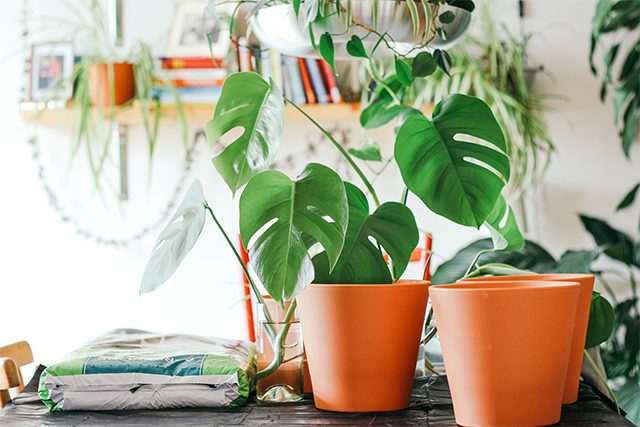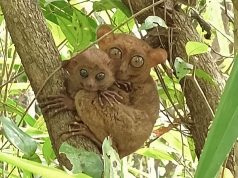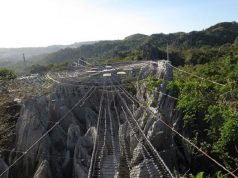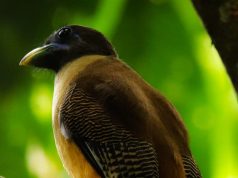The Department of Environment and Natural Resources recently warned the public against the purchasing exotic plants from poachers amid the rise of indoor gardening as a hobby during quarantine.
The ongoing community quarantine and lockdown in different parts of the country fostered Filipinos to develop various hobbies such as home-cooked meals, baked goods and recently, indoor gardening.
Calling themselves “plantito,” “plantita,” or even “halamom,” some Filipinos in urban cities cultivated their own green sanctuaries for the sake of their mental health amid the raging novel coronavirus pandemic.
Several personalities and influencers have also developed their affinity in growing plants at home. These include singer-songwriter Abby Asistio, TV host Gretchen Fullido, actress-model Solenn Heussaff and beauty vlogger Anne Clutz, among others.
Reports of plant poaching
In an interview with Bloomberg, an official from DENR’s Biodiversity Management Bureau reported the rise of traders scouring plants from mountains, forests and protected parks due to the demand in the cities.
Plant Thieves Scour Forests to Satisfy Foliage-Starved Filipinos
"The bureau’s agents…are working with the National Bureau of Investigation to catch illegal gatherers and traders of the "vulnerable" & “endangered” species…"#StopIllegalWildlifeTradehttps://t.co/vd2HWER0zJ
— DENR (@DENROfficial) September 13, 2020
“Illegal gatherers and collectors are having a fiesta because the market is bigger and prices are more attractive,” said Rogelio Demallete, an ecosystem specialist at the DENR-BMB.
“People are buying and raising plants because of boredom from the quarantine,” he added.
The City Environment and Parks Management Office in Baguio also reported that some plants in its parks and greenbelts went missing.
These include nearly wiping out the monstera plants in portions of Mines View Park and Burnham Park, succulents at the City Hall Park and rubber trees at Upper Session Road.
Authorities stated that these are among the plant species selling like hot cakes in the market.
Rhenan Diwas, Assistance City Environment and Parks Management Officer, reminded the public of respecting the natural habitat of plants, particularly wildlife flora and fauna.
“While we appreciate the growing interest of the people in maintaining plants in their homes and we understand the need of some to earn, let us be reminded (of respecting) the natural habitat of these plants,” Diwas said.
“Allow them to multiply in the forest rather than constricted in a pot. Let them grow and bloom in public places for everyone to appreciate. We should learn from this pandemic: it is dangerous to encroach on the habitat of wildlife,” he added.
Demallete also noted that in-demand plants are priced 35% or 40% higher than pre-pandemic period.
A plant hobbyist was cited in the Bloomberg article as saying that a mature monstera cost a hefty P3,000 and a white-leaf monstera often fetches up to P7,000.
Some Filipinos who wished to collect plants in their homes also echoed the concern for the hefty costs of plants, particularly from online sellers on social media platforms.
Reveal ko na, those Snake plants cost 100 to 150, the pots, at least 400. Imagine the tubo. 😐 Dinala sa lighting and presentation.
Like I said, plants shouldn't be this expensive. It will boost plant sellers' income in the short run but it will not encourage people gardening. pic.twitter.com/ic8nBjs8lu
— Mugen (@tr1pnaut1k) September 15, 2020
idk teh ha not all plant sellers naman but the OG plant titas/lolas sa probinsya don’t buy plants… naghihingi-an lang mga ‘yan
— omid (@omidong) September 16, 2020
In line with the cases of plant theft and illegal trade, Demallete said that the bureau’s agents are already working closely with the National Bureau of Investigation to catch these violators, and protect the country’s natural resources from them.
What the law says
All wildlife resources and their habitats are protected under Republic Act 9147 or the “Wildlife Resources Conservation and Protection Act.”
Section 8 specifically prohibits possession of wild flora and fauna unless authorized by the DENR or any related government agency.
“No person or entity shall be allowed possession of wildlife unless such person or entity can prove financial and technical capability and facility to maintain said wildlife.”
Similarly, in section 23, the collection of threatened species shall only be allowed “for scientific, or breeding or propagation purposes.”
Violators of any of the provisions in the measure may face up to six to 12 years in imprisonment and a fine from P100,000 to P1 million.










